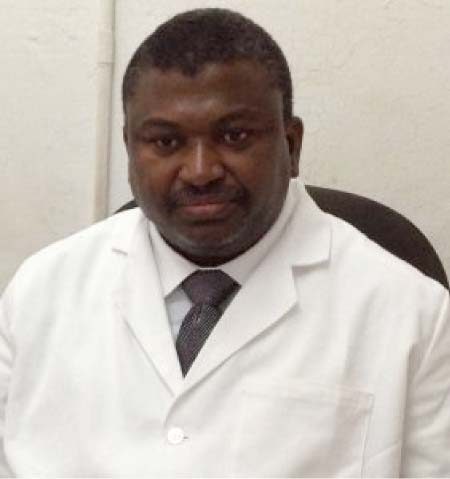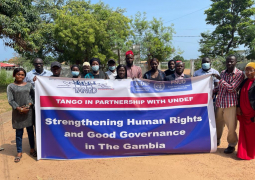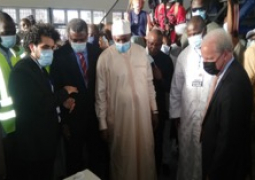
The study aims to provide estimates on exposure of Covid-19 in the Gambian population. This would help to estimate the number of people who were infected with Covid-19 but were never tested to know their Covid-19 status.
Director Sanneh in his deliberations, highlighted the objectives of the survey, saying it would determine the proportion of positive individuals that are SARS-CoV-2 asymptomatic and negative individuals that are symptomatic. It would equally determine the proportion of positive and negative individuals that reported having pre-existing medical conditions.
According to him, the best time for such a study is when the population is not vaccinated. However, Sanneh added “due to some logistics and other technical constraints, we are doing the study at this time when some people are already vaccinated”.
He added that the study is a nationwide exercise but they have randomly selected sites across all regions in the country in collaboration with Gambia Bureau of Statistics.
“In total, 115 enumeration areas (EAs) were selected and listed to determine the number of compounds and households that exist there. In each EA, 15 households are randomly selected for interviews. In each household, 1 person will be selected to participate in the study.”
The survey would be conducted through interviews by trained and competent field staff and through RDT test.
The target population for the study, he added, is household members aged above 5 years regardless of their previous or current infection with Covid-19 and those who resided in the country during the period of transmission of SARS-CoV-2.
He noted that the investigation poses minimal risk to participants as it only involves the collection of a small amount of blood. “The primary benefit of the study is indirect, in that data collected will help improve and guide efforts to understanding the extent of Covid-19 infection and better inform our risk communication and community engagement strategies to prevent further transmission of the virus.” Sanneh posited.
Director of Health Promotion and Education, Modou Njai, said the survey is unique as it would help to determine the proportion of the at-risk population.
He urged the public to effectively and efficiently participate in the survey as the findings would be beneficial to all “The results of the survey is going to help all of us, because we will now get all the data, simplify them and package them in a way that can be used to inform the public.”
He implored the media to encourage people to participate in the exercise so that surveyors can get the required reliable information.





